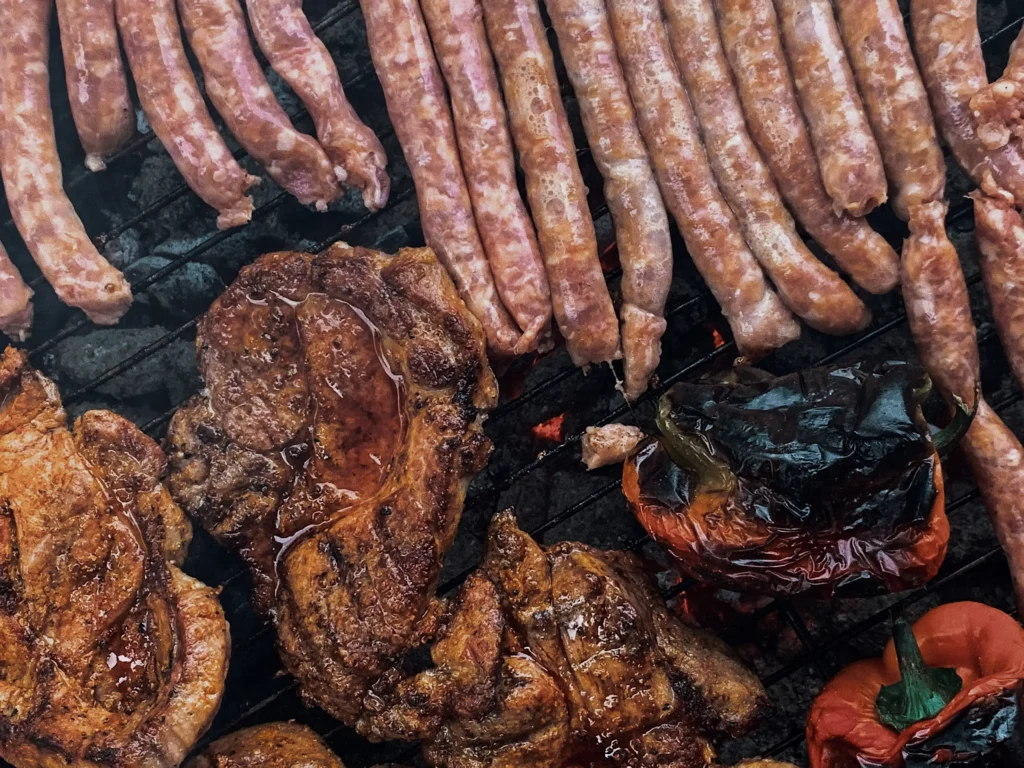Service Dog Nutrition: All dogs need a balanced diet, especially service dogs. Typically, a service dog can have a more active lifestyle with day-to-day tasks that it needs to perform. More importantly, the service dog’s diet can impact its energy levels, tolerance to illness, and mental health.
Table of Contents
ToggleSo, you’re probably wondering, what’s the best service dog meal plan? Don’t fret! Picking the right service dog nutrition plan isn’t that complicated.
Lucky for you, we have all the information you need to know about service dog nutrition in today’s article. Let’s get right into it!
Service Dog Nutritional Requirements
The diet of your service dog depends on the type of work they do. So, you should consider if the dog requires more protein to build muscles or more carbs to help it perform strenuous activities.
Your service dog’s diet will also depend on its size and breed. In any case, there are some nutrition elements that you should include in your service dog’s diet to provide it with all its needs.
Let’s check them out in detail.
1. Protein

Your furry friend is basically an omnivore. However, animal meat sources are crucial for their well-being, especially for service dogs who carry out demanding work.
Typically, working dogs will require additional protein in their diet. That’s because protein isn’t only for maintaining muscles, but it also helps your pup sustain its energy for longer periods.
Additionally, proteins include essential amino acids that your service friend needs to stay healthy. These amino acids are found in both animal and plant proteins.
So, if your dog is on a homemade diet, you’ll need to provide your dog with both animal and plant protein.
There are many great sources of protein for dogs. Luckily, they don’t cost a lot. A simple raw egg as a topper can provide your pup with the needed protein. Your canine friend can also have fish, poultry, and red meat.
Additionally, your furry friend can’t get its energy solely from protein. The reason is that protein takes longer to get digested and turned into calories. So, your puppy would still need a rapid energy boost from other sources.
2. Carbohydrates
Carbohydrates are what provide your pup with that instant kick of energy. That’s because they digest and burn rather quickly. So, your dog can get an energy boost while digesting the rest of its meal.
While some owners prefer to put their dogs on a low-carb diet, service dogs require more carbs, especially if they regularly perform exhausting tasks that require agility.
So, service dogs will likely benefit from a moderate amount of carbohydrates. Some excellent sources of carbohydrates for your canine include grains, corn, and wheat. That’s because they also contain beneficial fibers, which are essential for gut health.
Luckily, carbohydrates are readily available in your dog’s kibble. Most commercial dog food contains adequate amounts of carbs.
3. Fats
Fats are an essential part of any service dog diet. However, the amount of fat the dog needs depends on many factors, including its breed, age, overall weather conditions, and the type of activity it needs to perform.
The more activities your dog has to do, the more fat content they’ll need. That’s because fats are basically a concentrated source of energy. Moreover, in colder climates, your service animal might require more fat content to stay warm.
To add, there are two types of fat: healthy fat, and non-healthy fat. Healthy fat contains essential fatty acids, which aren’t synthesized in the body. So, your furry friend needs them in their diet.
However, you need to be careful not to include too much fat in your dog’s diet, as it can lead to obesity and other health problems.
4. Vitamins

There are two types of vitamins: fat-soluble vitamins and water-soluble vitamins. Your service pup needs both types of vitamins in its diet.
For starters, fat-soluble vitamins include vitamins A, D, E, and K. On the other hand, water-soluble vitamins include B1, B2, B3, B5, B6, B7, B9, B12, and choline.
Most types of commercial dry food contain adequate amounts of required vitamins. So, you’ll need to check the label of the food you’re giving your dog to make sure it contains all essential vitamins.
On the other hand, if your dog is on a homemade diet, you might need to add supplements to its diet. This is just to make sure your furry friend is receiving all the vitamins it needs to stay healthy.
Otherwise, your dog might suffer from vitamin deficiencies, which can affect its health.
5. Minerals
Not only are minerals essential for your pup’s body to function properly, but they also contribute to nerve function. In other terms, minerals help your dog think better!
These minerals include calcium, phosphorus, magnesium, sodium, chloride, potassium, and sulfur. Other trace minerals that should be in your dog’s diet are iron, selenium, iodine, and fluorine.
Most commercial dog food already contains these minerals, so you won’t need to find other sources.
On the other hand, if you feed your dog homemade meals, you’ll need to include good sources of minerals in their diet. Rich sources of essential minerals include fish, bone meal, grains, and molasses.
6. Hydration
It’s crucial to keep fresh, clean water accessible to your dog at all times, especially in hot climates. Water is perhaps the most important part of your little friend’s diet.
To add, dogs who are more active and eat dry food require more hydration than other dogs.
Frequently Asked Questions

How Many Times a Day Should You Feed a Working Dog?
Most working dogs will eat 2-3 times per day. Although this may vary depending on the size and breed of your dog, a daily feeding schedule should include a good mixture of protein (around 25%), carbohydrates (10%), and fiber (5%).
In addition to their regular food, working dogs often require additional supplementation such as vitamins and minerals, water, liver oil or fish meal, glucosamine sulfate supplements for joint health, probiotics for intestinal balance support, calcium d-glucarate supplements for bone strength & density development in growing puppies/dogs, etc.
It’s important to always consult with your veterinarian before starting any new supplement regimen because each animal is unique and could respond differently to various ingredients. Also, be sure to rotate different types of foods so that your dog gets all the nutrients they need overall rather than just one type over another.
What Traits Make a Good Service Dog?
A good service dog should be enthusiastic and love to serve his or her owner. He or she should also be obedient, patient, and reliable. A good service dog is typically trained using positive reinforcement techniques such as clicker training, which helps improve behavior and trains the dog to respond positively to commands.
How much Protein Does a Working Dog Need?
Dogs need about 22-24 percent of their daily caloric needs in protein, which is equivalent to around 55 grams of protein per day. This includes both plant-based and animal-based proteins.
Should You Leave Dog Food out All Day?
This is a difficult question to answer as every dog has different dietary requirements.
However, in general, most experts believe that you should not leave food out all day long. This is because it can lead to dental problems, obesity, and starvation-related behavior issues.
Instead, feed your dog regularly throughout the day and make sure that their food bowl is full at all times.
Conclusion
So, what should a Service Dog Nutrition plan include? Ideally, a service dog’s diet should be rich in protein, which is important for the muscles. Additionally, carbohydrates provide your dog with energy to carry on its day-to-day tasks.
You also need to include fats in your dog’s diet, as it provides your friend with energy and essential fatty acids. On top of that, your dog requires vitamins and minerals in small amounts to stay healthy.
Finally, don’t forget to keep clean water accessible at all times to your service dog.








